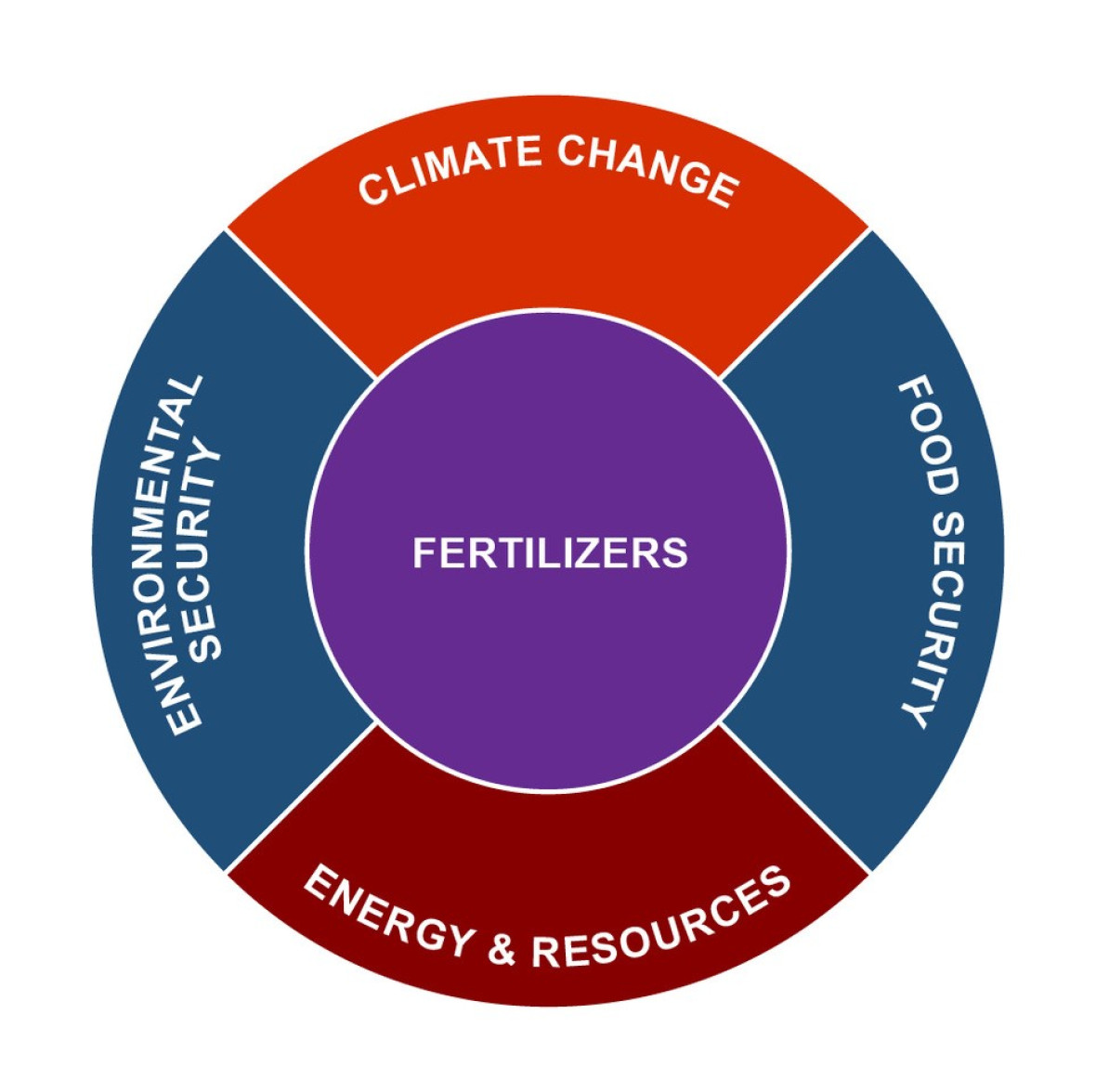War and Climate Crisis Drive Emerging Transformation of Fertiliser Industry
21.01.2025
Although fertilisers are essential for global food production, they also contribute to global greenhouse gas emissions. The war in Ukraine caused supply chain disruptions and price increases. How can fertiliser production become more sustainable and resilient to geopolitical crises? In an article in the journal “One Earth”, a team from the Research Institute for Sustainability (RIFS) at the GFZ Helmholtz Centre for Geosciences analyses this question.

“In 2022, Russia’s war of aggression against Ukraine brought about an increase in fertiliser prices and a disruption of supply chains, jeopardising food security in the Global South. This war and other geopolitical crises pose a threat to the goal of securing the supply of fertilisers. Green hydrogen has a central role to play here: It offers the possibility of simultaneously decarbonising fertiliser production and achieving independence from Russian exports,” explains lead author Rainer Quitzow from the RIFS in Potsdam. A range of coordinated measures are needed in order to solve the intertwined problems.
The growing influence of China
The researchers identify three key factors that exert a significant influence on the fertiliser market:
First, the supply structure has changed substantially in recent years, mainly due to China’s growing influence. The country has emerged as the largest global producer of nitrogen and phosphate fertilisers and controls a significant share of the global mining of phosphate rock for fertiliser production. The Chinese government employs political measures to steer supply and prices, with one of the aims being to ensure the domestic availability of fertilisers.
Secondly, geopolitical competition has been amplified by the war in Ukraine and by growing food insecurity in the Global South. The war interrupted export routes via the Black Sea and resulted in sharp increases in fertiliser prices. Since then, prices have remained unpredictable. In particular, this affects countries in Latin America and Africa that are dependent on fertiliser imports. But it also presents the EU with new challenges in securing of fertiliser production.
Reduced emissions through new technologies and greater nutrient use efficiency
A third driver for changes in the fertiliser landscape is the imperative of decarbonization. The basis for synthetic nitrogen-fertilisers is ammonia, which is produced using nitrogen and hydrogen in an energy-intensive process. Unless it is made with green hydrogen from renewable energy sources, the production requires large amounts of fossil-fuel based resources. However, the authors estimate that the costs of producing so-called green ammonia with renewable hydrogen are currently more than twice those of conventional processes. Concepts are therefore needed to finance the transition costs.
In addition to technological solutions, decarbonising the sector also requires reducing synthetic fertiliser use. “Sustainable fertiliser management practices must be promoted to address the twin challenges of climate change and disruptions of bio-geochemical flows in the earth system,” explains Quitzow. Nutrient recycling, i.e. the recovery of unused nutrients, from agricultural waste products for example, can also help reduce the dependence on fertiliser imports.
Similiar challenges for other supply chains
The transformation of the fertiliser sector is already underway: With the goal of alleviating fertiliser supply shortages, the United States has launched a “Global Fertilizer Challenge”, which the EU has joined. Brazil has launched a national fertiliser strategy, while Russia is seeking to strengthen its influence in Africa through the donation of fertilisers.
These developments, the researchers argue, have implications that extend beyond the fertiliser sector. “They also bring to the fore more fundamental questions of how commodities and their supply chains are being reshaped against the background of new geopolitical realities,” according to Quitzow. The developments following Russia’s invasion of Ukraine have underlined the political significance of the fertiliser sector. Its embeddedness in the nexus of food, climate change, energy and mineral resources, environment and security; but also its use as a foreign policy tool to pursue “soft-power” goals, warrant closer examination.
Rainer Quitzow, Margarita Balmaceda, Andreas Goldthau, The nexus of geopolitics, decarbonization, and food security gives rise to distinct challenges across fertilizer supply chains, One Earth, Volume 8, Issue 1, 2025, 101173, ISSN 2590-3322, https://doi.org/10.1016/j.oneear.2024.12.009.

Fertilisers and their interactions with climate change, food security, environmental security, energy and resources. Fertilisers have an impact on climate change, food security and environmental security, while energy and resources have an impact on fertilisers; climate change in turn has an impact on environmental security and food security. (c) Rainer Quitzow, Margarita Balmaceda, Andreas Goldthau
Contact

